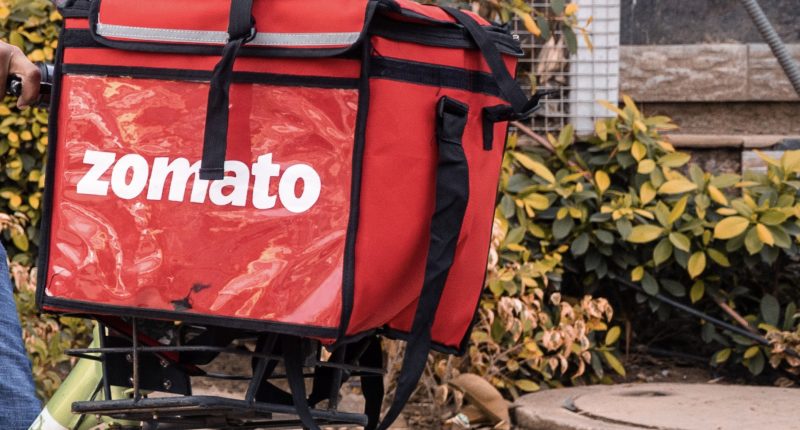Eternal — the parent company of both Zomato and Blinkit — reported its financial results for the second quarter of the 2025–26 fiscal year (Q2 FY26), showing a significant decline in net profit despite strong revenue growth. The company’s consolidated net profit dropped 63% year-on-year to ₹65 crore, down from ₹176 crore in the same period last year. This decline came even as the company recorded a substantial increase in its overall revenue, indicating that higher costs and investments in its operations (particularly in the quick commerce segment) affected profitability. Notably, in Q1 FY26, the company had reported an even sharper 90% year-on-year decline in net profit, which fell to ₹25 crore.
The company’s revenue from operations surged 183% to ₹13,590 crore, compared to ₹4,799 crore in Q2 FY25. In Q1, revenue had already risen 70% year-on-year, to ₹7,167 crore, showing a steady growth trajectory across quarters. The recent jump was largely driven by Blinkit, which benefited from its transition to an inventory-led model. Blinkit’s revenue for the quarter increased to ₹9,891 crore, more than four times from ₹2,400 crore in Q1 and up from ₹1,156 crore in Q2 FY25. Notably, this comes when the company has been aggressively expanding its quick commerce network, opening new stores and investing in faster delivery infrastructure.
Importantly, Blinkit’s expansion has been aggressive. By the end of Q2, the company had expanded its store network to over 1,544 outlets, adding 243 stores in Q1 alone. However, the rapid expansion came with a sharp rise in costs. Total expenses for Q2 FY26 climbed 188% year-on-year to ₹13,813 crore, continuing the trend from Q1 when expenses had increased 79% to ₹7,433 crore. A significant portion of this increase was due to higher marketing expenditures and accelerated store expansion for Blinkit.
Meanwhile, the food delivery business (which mainly includes Zomato) continued to grow at a slower pace but remained profitable. Revenue from this segment in Q2 FY26 was ₹2,482 crore, up 16% from ₹2,261 crore in Q1 FY26 and ₹2,012 crore in Q2 FY25. Adjusted EBITDA margins for Zomato improved to around 5% of net order value, slightly higher than the 3.9% margin reported in Q1 FY26.
It is also worth noting that despite the decline in net profit, Eternal says it managed to improve its operational efficiency. The company reported an adjusted EBITDA margin of 5.3% for the quarter, with absolute adjusted EBITDA exceeding ₹500 crore, up from ₹451 crore in Q1 FY26. And looking ahead, the Deepinder Goyal-led company plans to continue its rapid expansion, with targets to increase Blinkit’s store count to 2,100 by December 2025 and 3,000 by March 2027.
But, in parallel, the company is also facing several challenges and controversies. In April 2025, Zomato’s food delivery CEO, Rakesh Ranjan, stepped down after nearly two years, adding to a series of top-level exits that have raised questions about leadership stability. Even in March 2025, the Competition Commission of India (CCI) launched an investigation into Blinkit over allegations of predatory pricing. Industry bodies like FHRAI and NRAI are also reportedly planning legal action, alleging Zomato competes with them through private-label brands like Bistro.
The Tech Portal is published by Blue Box Media Private Limited. Our investors have no influence over our reporting. Read our full Ownership and Funding Disclosure →





